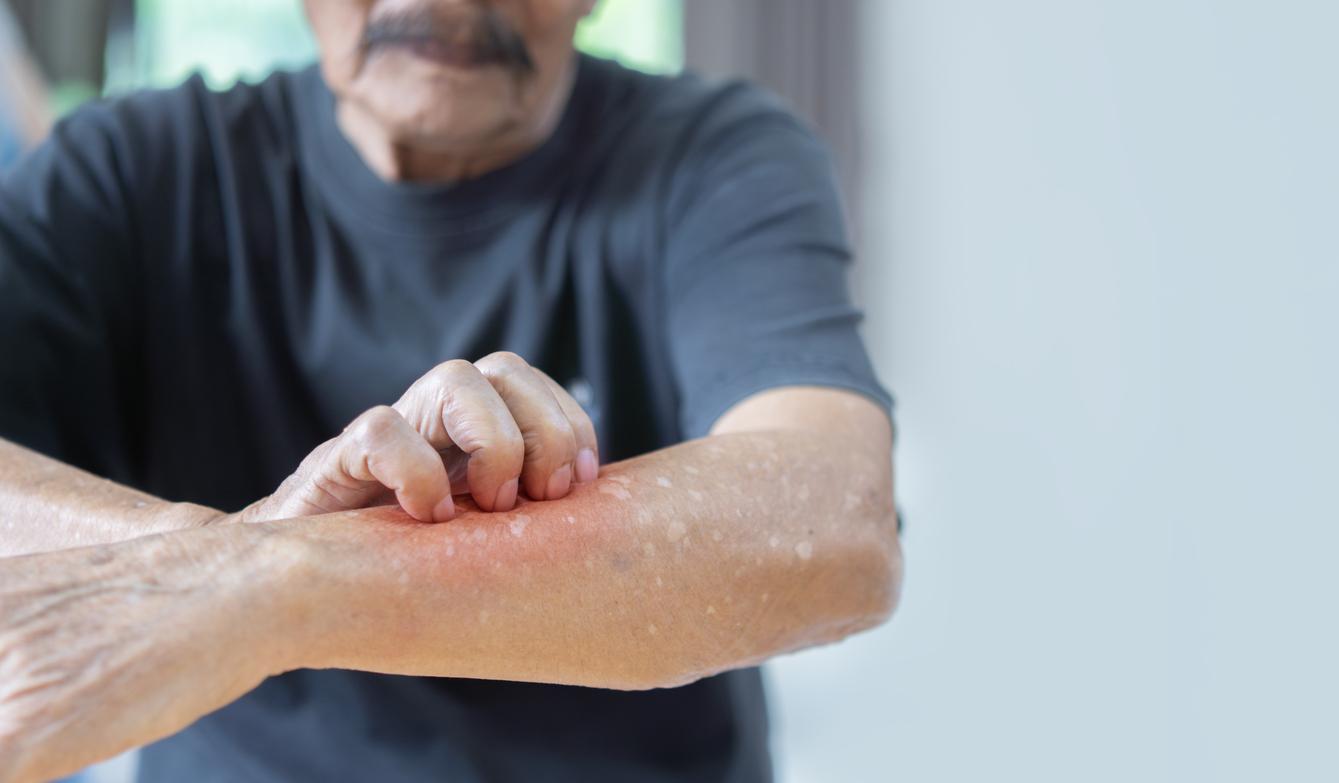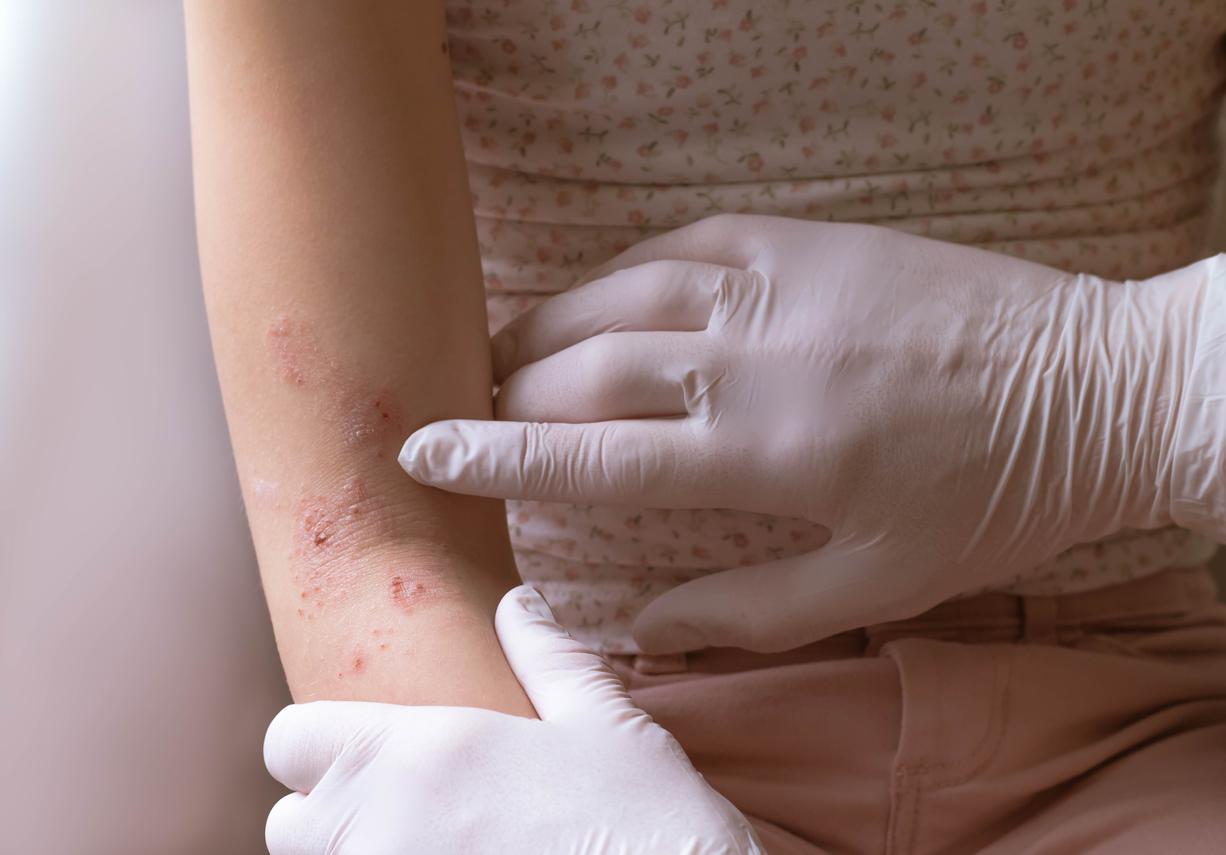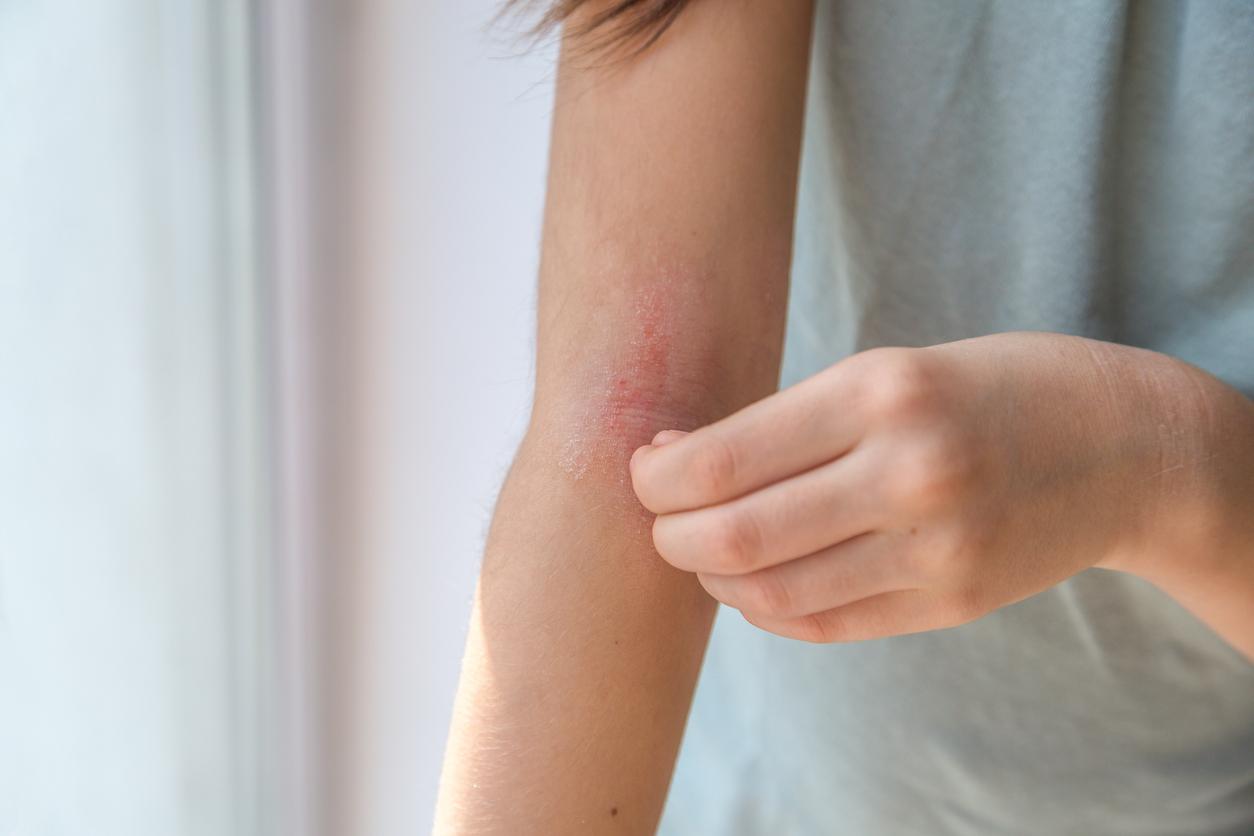Medications used to treat high blood pressure are associated with an increased risk of eczematous dermatitis in seniors.

- Among older adults, the use of antihypertensive medications is associated with a 29% increase in the rate of eczema diagnoses.
- The greatest effects were observed for diuretics and calcium channel blockers.
- Weaker effects were observed for angiotensin-converting enzyme inhibitors and β-blockers.
Cases of eczema diagnosed by doctors are on the rise among older people. Problem: little is known about the pathophysiological processes and the best treatments for these patients. “Preliminary data suggest that medications, particularly antihypertensive medications, may contribute to eczematous dermatitis. However, there are few population-based data regarding the proportion of eczematous dermatitis diagnoses in older adults that can be attributed to antihypertensive medications.”indicated researchers from the University of California in San Francisco (United States).
Eczema: 29% increased risk in seniors taking antihypertensives
In a recent study, they wanted to determine whether the use of medications for high blood pressure was linked to eczema in the elderly. To do this, the scientists used data from a longitudinal cohort of 1,561,358 adults aged 60 and over who had not been diagnosed with eczematous dermatitis. According to the results, published in the journal JAMA Dermatologythe overall prevalence of eczema was 6.7% during a median follow-up of 6 years.
The incidence of eczematous dermatitis was higher in participants receiving antihypertensive drugs than in those not taking them (12 versus 9 over 1,000 person-years of follow-up). Volunteers using medications for high blood pressure were 29% more likely to have eczematous dermatitis. When evaluating each class of antihypertensive drugs individually, the greatest effects were observed for diuretics and calcium channel blockers, while the weakest effects were observed for blood-converting enzyme inhibitors. angiotensin and β-blockers.
Data “useful to clinicians to guide clinical management” of eczema
“Although further research is needed to understand the mechanisms underlying the association between antihypertensive medication use and eczematous dermatitis, these data could be useful to clinicians to guide clinical management when a patient more elderly presents with eczematous dermatitis”, the authors concluded.


















